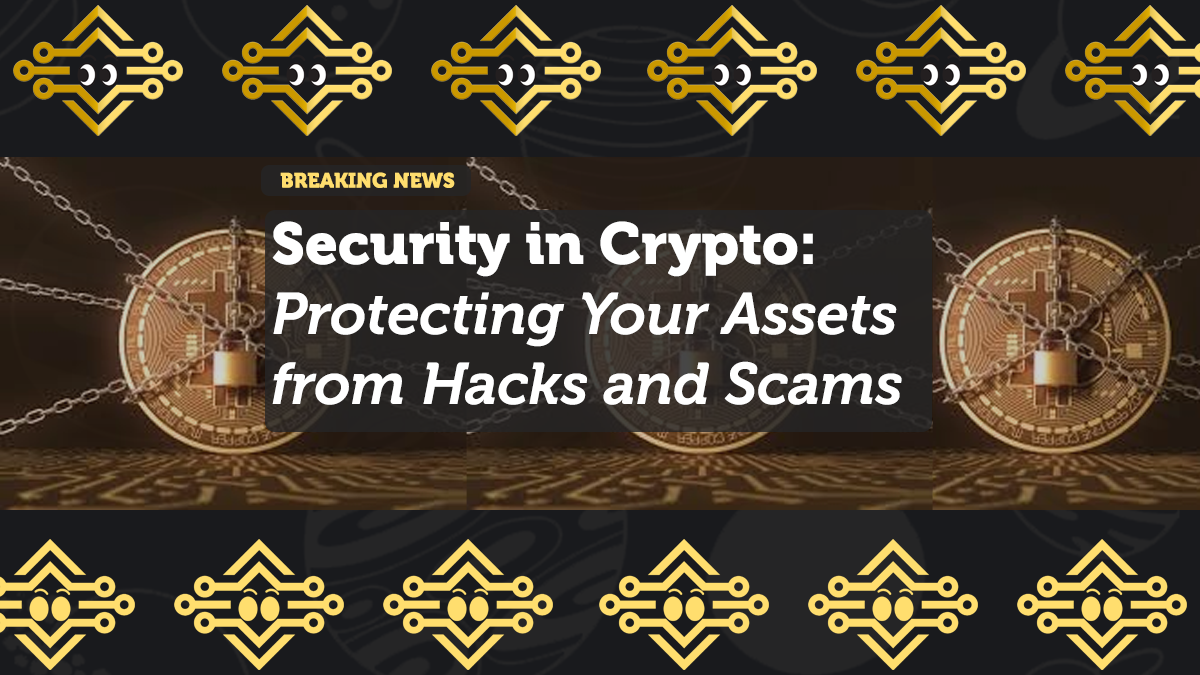
Security in Crypto: Protecting Your Assets from Hacks and Scams
Cryptocurrency has revolutionized how we think about money and investments, but this new frontier comes with its own risks. The decentralized nature of crypto makes it a prime target for hackers and scammers. Protecting your assets from these threats is crucial for anyone involved in the crypto space. Let’s dive into the latest security threats and how you can safeguard your digital assets.
Latest Security Threats in the Crypto Space
The crypto world is no stranger to security challenges. New threats constantly emerge, often exploiting the very technology that powers cryptocurrencies. Understanding these threats is the first step in defending against them.
- Phishing Attacks: Phishing remains one of the most widespread methods hackers use to steal crypto assets. Hackers often impersonate trusted entities—like popular exchanges or wallet services—to trick users into revealing their private keys or login credentials. Once hackers obtain this information, they can quickly drain your funds.
- Rug Pulls: Rug pulls represent a particularly nasty scam in which crypto project developers suddenly withdraw all funds and vanish, leaving investors with worthless tokens. Scammers often target new or lesser-known projects that promise high returns with minimal risk.
- Exchange Hacks: Despite increased security measures, hackers still target cryptocurrency exchanges, aiming to steal millions in a single breach. When hackers successfully execute these attacks, users often struggle to recover their funds.
Practical Tips for Securing Your Digital Assets
While the threats are real, there are several steps you can take to protect your crypto holdings. Implementing these strategies will significantly enhance your security.
- Use Hardware Wallets: Hardware wallets offer one of the safest ways to store your cryptocurrency. Unlike software wallets connected to the internet, hardware wallets keep your private keys offline, drastically reducing the risk of hacks.
- Enable Two-Factor Authentication (2FA): Always enable 2FA on your exchange accounts and wallets. This adds an extra layer of security by requiring not just your password, but also a second form of identification—usually a code sent to your phone or generated by an authenticator app.
- Avoid Common Scams: Be cautious of offers that seem too good to be true. Scammers often promise guaranteed returns or secret investment opportunities. Never share your private keys, and always double-check URLs to ensure you’re on legitimate websites.
Recent High-Profile Security Breaches
Even with all the precautions, some well-known platforms have fallen victim to high-profile security breaches. These incidents highlight the importance of staying vigilant and informed.
- Mt. Gox Hack: The Mt. Gox exchange suffered one of the earliest and most infamous crypto hacks, losing 850,000 Bitcoins in 2014. This massive breach highlighted the risks of storing large amounts of crypto on centralized platforms.
- KuCoin Hack: In 2020, hackers breached the KuCoin exchange, stealing over $280 million worth of cryptocurrency. KuCoin and its partners quickly responded, recovering a significant portion of the funds, but the event underscored the ongoing security challenges in the crypto space.
- Poly Network Attack: More recently, in 2021, hackers targeted the Poly Network in one of the largest DeFi hacks, stealing over $600 million. Surprisingly, the hacker returned the funds, claiming it was an attempt to expose the network’s vulnerabilities. This incident emphasized the need for robust security protocols in the rapidly growing decentralized finance sector.
Expert Advice from Cybersecurity Professionals
Protecting your assets in the crypto world requires more than just basic security practices. Here’s what experts recommend:
- Stay Informed: Keeping up with the latest security trends and threats is essential. The crypto space evolves quickly, and staying informed is your best defense against new types of attacks.
- Use Cold Storage for Long-Term Holdings: Cybersecurity experts recommend using cold storage—offline wallets—for long-term holdings. Cold storage prevents hackers from accessing your assets, even if your computer or network is compromised.
- Diversify Your Holdings: Avoid keeping all your assets in one place. Spread your crypto across multiple wallets and exchanges to minimize the risk of losing everything in a single attack.
Key Takeaways
Security in the crypto space is a moving target, with new threats emerging as quickly as old ones are mitigated. Understanding the risks—such as phishing attacks, rug pulls, and exchange hacks—is essential for anyone invested in cryptocurrencies. By following expert advice, using hardware wallets, enabling 2FA, and staying informed, you can significantly reduce your risk and protect your digital assets from potential threats.
















